




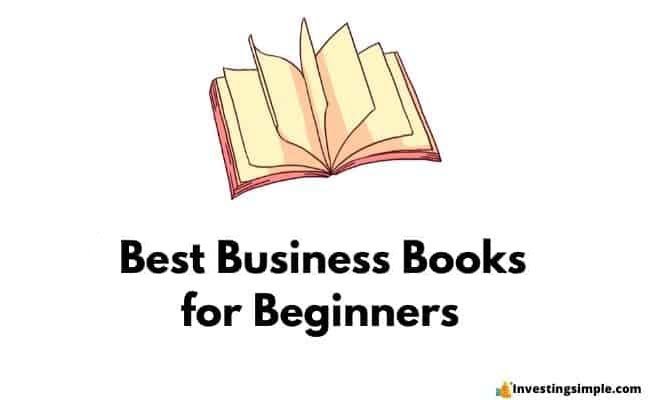
So, you want to start a business?
Maybe you're tired of the 9-to-5 grind and dream of being your own boss. Perhaps you have a creative vision you can’t ignore, an idea that keeps you up at night, or a deep desire to build something meaningful. Whatever your motivation, stepping into the world of entrepreneurship is an exciting yet challenging journey.
First, welcome to the adventure!
Starting a business is one of the most rewarding yet demanding endeavors you can undertake. It requires resilience, adaptability, and a constant hunger to learn.
The road ahead won’t always be smooth—most entrepreneurs quickly realize just how much they don’t know as they dive in. That feeling of being overwhelmed? It’s completely normal. Every successful entrepreneur has been there.
The good news? You don’t have to figure it all out on your own. Many of the world’s most successful business minds have shared their experiences, strategies, and lessons in books designed to help aspiring entrepreneurs like you.
To set you up for success, we’ve compiled a list of must-read business books for beginners. These books go beyond basic business tactics—they challenge the way you think about success, wealth, and leadership. They’ll help you shift your mindset, avoid common pitfalls, and give you insights that might take years to learn otherwise.
If you're ready to invest in your entrepreneurial journey, these books are a great place to start.
Here are the absolute best business books for beginners that will help ensure your success:
| Title | Cover | Key Takeaway | Check Amazon |
|---|---|---|---|
| The E-Myth by Michael Gerber |
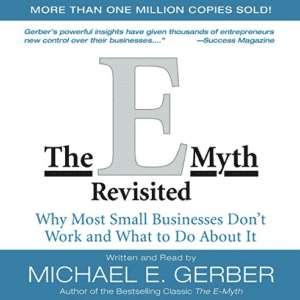 |
Blind spots can kill budding businesses; learn to build systems into your business. | Check the price on Amazon |
| From Side Hustle To Main Hustle To Millionaire by Ryan Scribner |
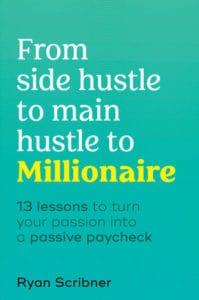 |
Tactical strategies for building your side hustle seriously. | Check the price on Amazon |
| The 22 Immutable Laws Of Marketing by Al Ries and Jack Trout |
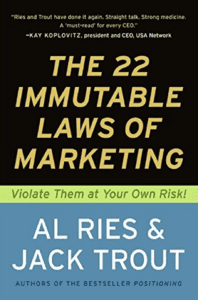 |
Learn essential marketing laws to avoid rookie mistakes. | Check the price on Amazon |
| Rich Dad Poor Dad by Robert Kiyosaki |
 |
Rich people leverage discretionary income to buy assets; poor people buy liabilities. | Check the price on Amazon |
| How To Win Friends And Influence People by Dale Carnegie |
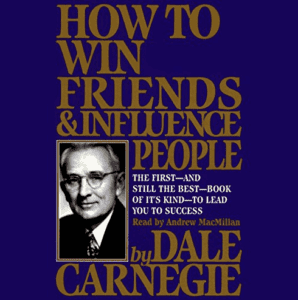 |
True leadership requires genuine goodwill in interactions. | Check the price on Amazon |
| The Hard Thing About Hard Things by Ben Horowitz |
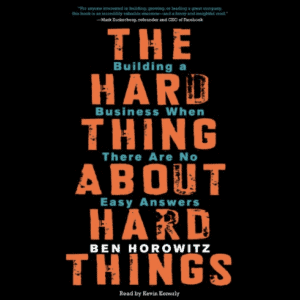 |
Navigating periods of danger and stress in business is critical. | Check the price on Amazon |
| The 7 Habits of Highly Effective People by Steven R. Covey |
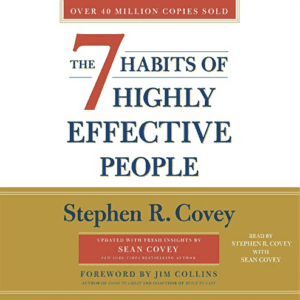 |
Align your daily habits with your goals for increased success. | Check the price on Amazon |
| 12 Months To $1 Million by Ryan Daniel Moran |
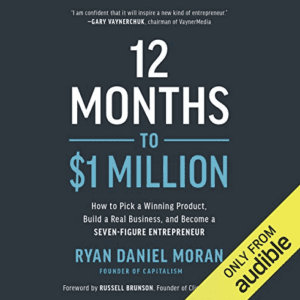 |
A step-by-step guide to becoming a millionaire in one year. | Check the price on Amazon |
| Zero to One by Peter Thiel |
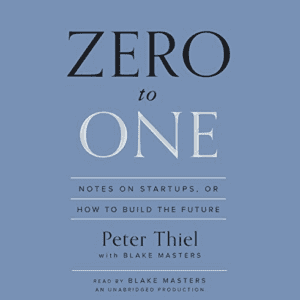 |
Innovation is key to lasting success; create something truly new. | Check the price on Amazon |
| Think and Grow Rich by Napoleon Hill |
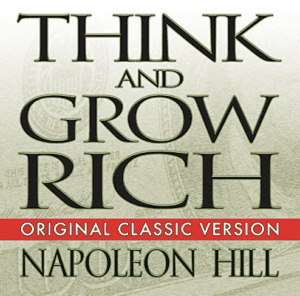 |
Shift your mindset to attract wealth and success. | Check the price on Amazon |
| Your Next Five Moves by Patrick Bet-David |
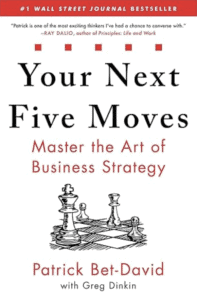 |
Always think several moves ahead to achieve success in business. | Check the price on Amazon |
| The Effective Executive by Peter F. Drucker |
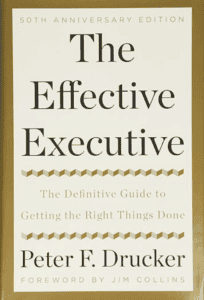 |
Effectiveness can be learned; focus on results and strengths. | Check the price on Amazon |
| The Lean Startup by Eric Ries |
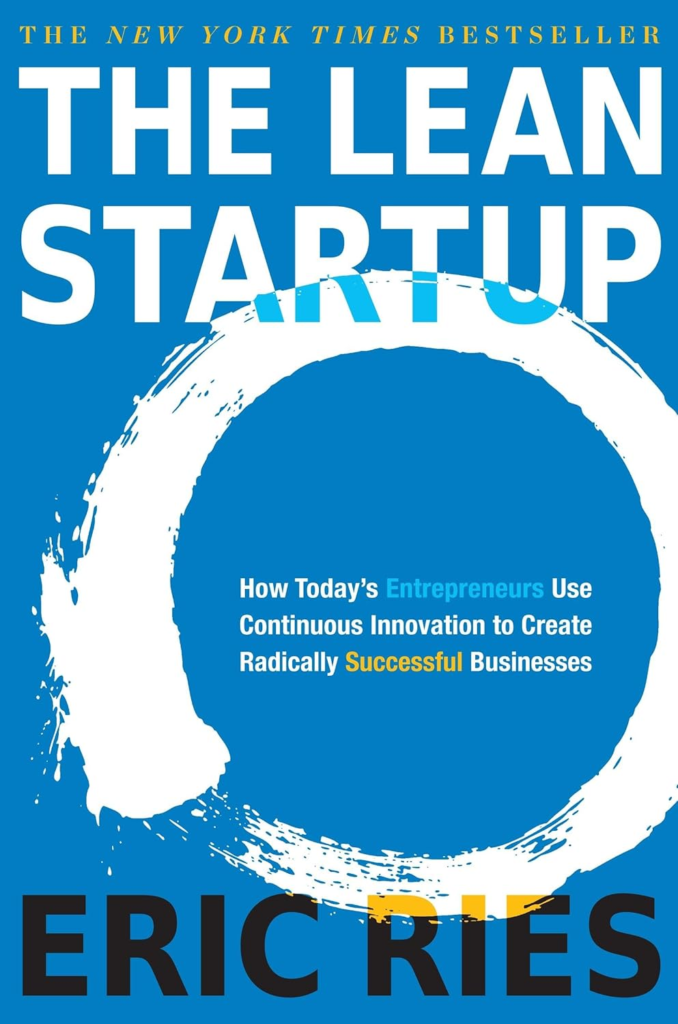 |
Use a build-measure-learn approach to develop a sustainable business. | Check the price on Amazon |
| Atomic Habits by James Clear |
 |
Small, consistent actions can lead to massive results over time. | Check the price on Amazon |
| Lost and Founder by Rand Fishkin |
 |
Venture capital can misalign incentives; prioritize customer value. | Check the price on Amazon |
| Dare to Lead by Brené Brown |
 |
True leadership requires vulnerability, courage, and authenticity. | Check the price on Amazon |
| Good to Great by Jim Collins |
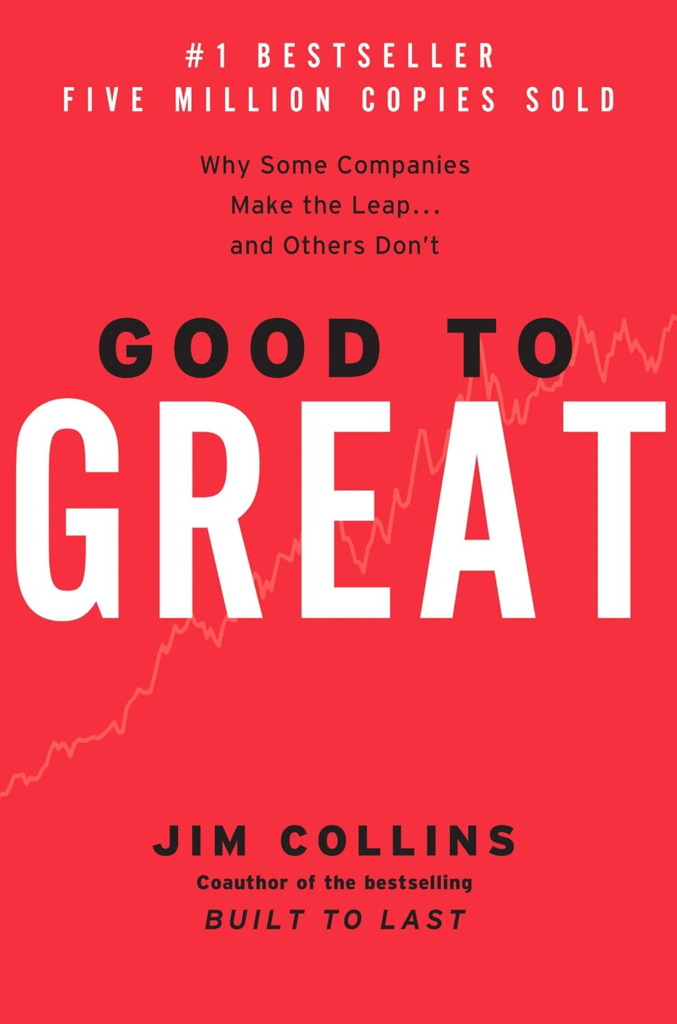 |
Focus on what you can be the best at for lasting success. | Check the price on Amazon |
| Shoe Dog by Phil Knight |
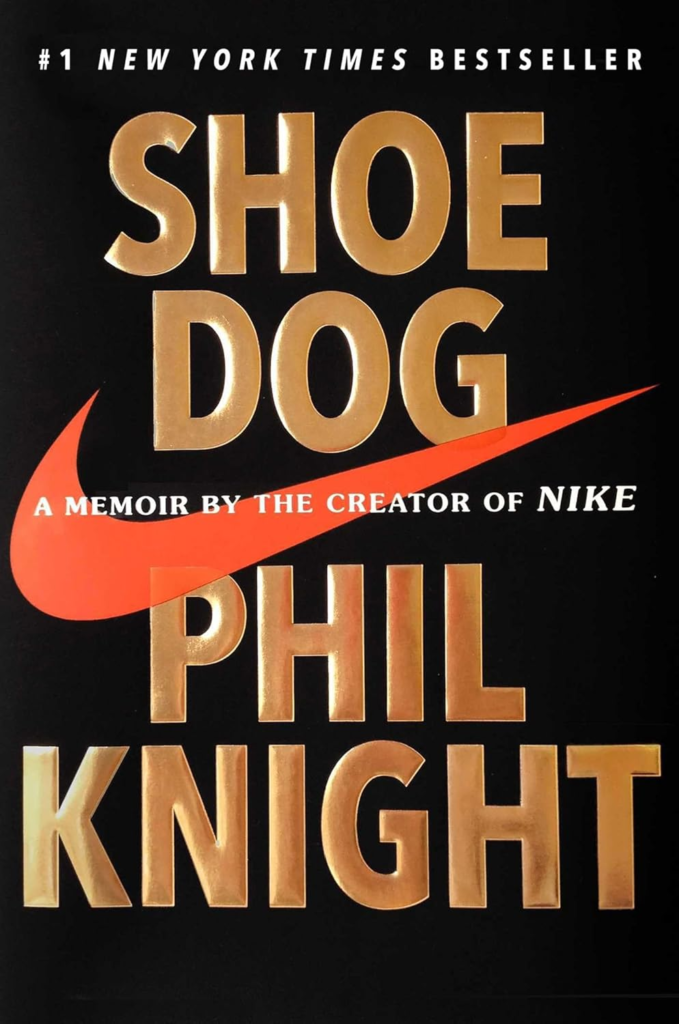 |
Resilience, relationships, and calculated risks drive success. | Check the price on Amazon |

"Why do most small businesses fail, and how can I prevent my business from doing so?"
Michael Gerber takes a deep dive into this question, and his findings show how blindspots can kill budding businesses.
What is the "E-Myth"? In Gerber's words:
Michael Gerber is a seasoned thought leader in the business realm, helping hundreds of thousands of companies grow for over 40 years.
In this seminal work, he shows new entrepreneurs the lifespan of a small business, and the three main roles business owners must learn to master and balance between to ensure their business' survival;
One of the major lessons of this book is how to build systems into your business that aren't dependent on your personal work ethic, talent, or genius.
By building a business structure that works without you, you can work on your business, instead of needing to work in your business.
The E Myth will help you avoid what could be years of time, and thousands of dollars worth of potential headaches by showing you exactly what your business needs at each stage of its lifespan.
The best part? Gerber has written over 20 different versions of the E Myth, tailored specifically to different business models and sectors!

These days, most businesses out there start off as a side hustle - something you do alongside your current job or business.
However, starting a side hustle isn't as simple as it may seem. That's because a side hustle is truly a "mini-business."
Ryan quit his job in 2017 in pursuit of freedom and better opportunities. From there, he launched his YouTube channel and created multiple digital income streams for himself. This, among other things, led to him becoming a millionaire.
In his book, Ryan shares tactical strategies for building your side hustle, but also hedging and diversifying both your business and your personal wealth.
If you want to start a side hustle and actually take it seriously, this is the book for you.

Would you build a rocket, expecting to sell it to the highest bidder, without first learning about rocket science?
Al Ries and Jack Trout have written an in-depth guide to an only slightly less cryptic topic in The 22 Immutable Laws of Marketing.
Marketing, like human psychology, is used in everything. Every part of your business in some way is affected by marketing.
The 22 Immutable Laws go through several hard principles about marketing that help define good business ideas against weak ideas very quickly.
It reveals to you how customers think about brands and products, and how you can position your brand into the best place for growth.
From the law of perception to the law of acceleration, after reading 22 Immutable Laws, you will know intuitively what not to do when facing the myriad choices you must when developing your brands, products, advertising campaigns, and even networking.
Marketing is everything. If this is the only book you ever read on marketing, it could save your business from some fatal rookie mistake.

What if you could learn everything about money that rich people already know?
What would your life look like if you had a wealthy father figure who taught you how to manage wealth?
Every culture since the dawn of time has featured rites of initiation, where newcomers undergo the passing of a ceremony to become ready for their new season of life.
Rich Dad Poor Dad is one such example, in self-help book form.
In Rich Dad, Kiyosaki talks about his two father figures, one of which is a hard-working employee, and the other who is a business owner. Through the book, Kiyosaki shows how each father acts in different financial scenarios, through moments of fear and greed.
One of the core principles of Rich Dad is that rich people use their discretional income to buy assets, where poor people use their discretional income to buy liabilities.
Check out our article on Assets vs Liabilities to learn more!
A lot of people have a lot to say about Robert Kiyosaki and this incredibly popular book, but until Rich Dad Poor Dad was written, the public discussion around personal finance was much more unclear.
Rich Dad Poor Dad might seem boring or outdated to some talking heads in the "hustle-sphere", but you should absolutely read it!
By doing so, you will understand which every-day financial choices are wasteful, and how to make sound financial choices in various situations in life.

If people skills have been a daunting area for you in the past, this next book can help take the stress out of a lot of hairy situations.
Even if tasks like networking, meetings, and sales come more naturally to you, Dale Carnegie's book shows readers how they can become world-class leaders and how to win in their social lives.
Though this book might seem out of place at first glance, it's actually incredibly relevant to building new businesses. It teaches you how to turn win/lose situations into win/win situations.
Written in 1936, How To Win Friends And Influence People has sold over 20 million copies, and is one of the best-selling books of all time.
Though there are many principles and instructions in this book, a recurring core lesson it teaches is genuine goodwill. That is, if your goodwill is genuine towards the people you're interacting with, and you actually give yourself to care about them, this will produce better outcomes than hoped for.
"If you want people to like you, you must like them first."
By reading through this timeless work, you can learn how to make real friends, as well as how to inspire, motivate, and influence people towards mutual good in and outside the world of business.
In our modern overstimulated and socially isolated world, marketers everywhere are trying nearly anything to cut through the white noise of the internet, and reach their consumers as effectively as possible.
Carnegie's principles are more valuable now than ever, especially for entrepreneurs who are just starting to figure things out.

Imagine this: You've made it. Your entrepreneurial dreams have all turned out successful... you're running your dream business, but now, the market is melting, and everything you've worked for is on the line.
This is a very real place you could be in 5 years, and as Ben Horowitz writes, there are a lot of hard things that need to be done without any easy answers.
Ben Horowitz has founded several tech companies, like Loudcloud in 1999, one of the first cloud service providers, and Andreessen Horowitz.
Ben has faced many hard trials managing his businesses, including the dot com bubble.
The Hard Thing About Hard Things is a guidebook for entrepreneurs who are facing hard times in their business.
While it's one thing to correctly navigate towards booming success, it's entirely another to learn how to correctly navigate periods of great danger.
Whether it's facing the choice of firing a friend, managing your mental health when everything around you is "on fire", dealing with bad employees, or even making the decision to sell your business, Ben Horowitz' experiences bleed through, and can help you make sober decisions with your enterprise when it's do or die.
This book is a great read for any budding entrepreneur. Business ownership can be one of the most stressful lifestyles to adopt, and Horowitz shows you how to deal with this well.

Why do we spend so much time on things that don't align with what we want?
Most people want good things for themselves; success in their work life, a wholesome family, and being able to make ends meet while having fun. These are all great goals, but most often, the things we do, including our daily habits, aren't congruent with the same caliber of lifestyle we say we want.
The 7 Habits of Highly Effective People provides an antidote to this problem we all find ourselves facing.
By reading this book and applying it to your lifestyle, your potential for success will skyrocket as a byproduct.
This book is a great read for anyone who has heard of it, but hasn't read it yet. It's one of those "classics" that everyone's heard about, and sounds important, but is often skimmed over.
The information itself is easy to consume, but it's entirely different to investing time in yourself by giving your attention to what this book can offer. If nothing else, by reading this book, you will gain experiential knowledge of the worth of investing in yourself, in real-time.
You'll never know what's on the other side of really taking time to get your act together.

If we told you it was possible for you to become a millionaire in just 12 months, would you believe that it's actually possible?
Sometimes you just need everything laid out for you, step by step. Well, if you're getting into the world of business ownership, 12 Months To $1 Million shows you exactly how to go from zero to millionaire, in (you guessed it), just one year.
This book provides you a blueprint for a business that can scale into seven figures. If you follow its instructions for a year, you'll not only have the know-how of what it takes to grow a brand and scale up, but you'll know how to repeat this process to generate multiple income streams as desired.
The idea behind this business plan is simple: If you have a line of 4 products that cost around $30, and make an average of 100 sales per day, you have a business that will generate $1 million USD revenue per year.
Through the book, Ryan takes you through the three stages of your business:
Ryan Daniel Moran is the founder of Capitalism.com, and has built a business that "helps entrepreneurs build 7-figure businesses they can sell."
12 Months To $1 Million is a great read for anyone who feels like they have a good idea for a physical product brand, but are looking for clarity on exactly what to do with it.
This book also shows how it's possible for anyone to have big success in business, without needing to spend 40 years to build it.

What if you had the thoughts of an incredibly disruptive modern billionaire, on the topic of building new startups?
Zero to One is a collection of lectures by Peter Thiel, compiled by himself and his student, Blake Masters.
Peter Thiel is a contrarian billionaire who cofounded companies PayPal and Palantir, and has invested in several ventures, including Facebook.
Zero to One teaches entrepreneurs how to think about the future, and how to approach building new startups for lasting success.
Its title principle, learning to go from "Zero to One", talks about the act of creation itself; making something (1) new, from nothing (0).
Thiel isn't talking about making something derivative, like an off-brand generic soda, but instead, making something that's actually new - the future. The book asserts that innovation is one of the most important signals for future success.
While Zero to One includes several entries that are a bit more philosophical, it also contains lectures that provide keen insights into positioning your startup for success in the digital world.
A major idea in the book is that monopolies solve the problems that competition creates for a business' revenue. By building a company that has the qualities of a monopoly, you can limit your exposure to competitors, ensure steady future returns, and create a future spent investing in additional income streams.
This book is a great read for anyone who feels like they have their basics covered, and wants to take their business journey to the next level, no matter the cost.

If someone's mind is ruled by fear, self-doubt, cynicism, and bad habits, how likely is it they will become wealthy and successful? Probably not too likely.
However, if someone replaced their negative thought patterns with encouragement, accountability, goals, and persistence, it seems more likely that that person could become successful on accident!
Another foundational work everyone can learn from, Think and Grow Rich by Napoleon Hill was published in 1937 after the Great Depression. It asserts that one's thoughts are extremely powerful and that when harnessed correctly, can be used to create wealth and good fortune.
While this can come across like all the buzzwords from every online guru in the same place, Think and Grow Rich has influenced multiple generations of successful entrepreneurs. You've likely already heard principles from this book paraphrased through third-hand sources during your self-development journey.
Napoleon's work teaches how to transmute your thoughts into tangible riches, but it also wrestles with many human themes like lifelong dreams, sexual drive and productivity, fear of poverty, and the fear of death.
Though it may seem laden with more spiritual concepts, the book includes pragmatic formulas for its readers to work through, including visualization, daily affirmations, creating a productive social circle, goal planning, and more.
Think and Grow Rich is great for any beginner in the world of business, because it teaches you how to win from nothing.

In "Your Next Five Moves," Patrick Bet-David delves into the complexities of strategic thinking and leadership in the business world.
Drawing from his extensive experience as an entrepreneur and CEO, Bet-David outlines a clear, actionable framework for achieving success in business and life. The book is structured around the concept of always thinking several moves ahead, much like a master chess player.
A key theme of the book is understanding yourself. This involves recognizing your strengths, weaknesses, and motivations to make better decisions. It also talks about identifying your ideal outcome. Clarifying your ultimate goals is crucial, as well as the steps needed to achieve them.
Patrick Bet-David emphasizes the importance of having a clear vision, being adaptable, and continuously learning to stay ahead in a competitive environment. The book combines practical advice with real-world examples, making it a valuable guide for aspiring entrepreneurs and seasoned business leaders alike.

"The Effective Executive" by Peter F. Drucker is a seminal work on management and productivity that focuses on what makes an executive effective. Drucker emphasizes that effectiveness is not innate but can be learned through practice and discipline.
One of the key practices outlined in the book is time management. Executives must be aware of how they spend their time and work to eliminate time-wasting activities. In addition, they should be focusing on results. They should prioritize tasks that contribute to the organization's performance and avoid being bogged down by trivial matters.
Another core theme in the book is building upon your strengths. Leveraging one's strengths and the strengths of others leads to better performance and productivity. In addition, setting priorities is crucial. Identifying the most important tasks and focusing on them ensures that executives address what truly matters.
Drucker stresses the importance of concentration, as spreading oneself too thin can lead to inefficiency. He also discusses the need for continuous learning and self-improvement.

One of the biggest mistakes new entrepreneurs make is spending too much time perfecting their product or service before launching. The Lean Startup challenges this mindset by advocating for a "build-measure-learn" approach. Ries introduces the concept of the Minimum Viable Product (MVP), encouraging entrepreneurs to test ideas quickly, gather feedback, and iterate. This book is a must-read for anyone looking to create a sustainable, scalable business with minimal wasted time and resources.
Key Takeaways:
Start small with an MVP and improve based on real customer feedback.
Embrace failure as a learning opportunity, not a setback.
Use data and experimentation to drive decision-making.

Success in business—and in life—often comes down to the small, consistent actions we take daily. In Atomic Habits, James Clear explains how tiny habits compound into massive results over time. This book is invaluable for entrepreneurs looking to improve productivity, build better habits, and eliminate the bad ones that hold them back.
Key Takeaways:
Focus on small, consistent improvements rather than drastic changes.
Your identity shapes your habits—become the kind of person who achieves your goals.
Make good habits easy and bad habits difficult.

"Lost and Founder: A Painfully Honest Field Guide to the Startup World" by Rand Fishkin offers a refreshingly candid take on the realities of entrepreneurship. As the founder of Moz, a leading SEO software company, Fishkin shares his experiences navigating the startup ecosystem, debunking the glamorous myths often associated with Silicon Valley success stories.
A key theme in the book is the pitfalls of venture capital funding. Fishkin details how raising money from investors can create misaligned incentives and immense pressure for rapid growth, often at the expense of long-term sustainability. He argues that bootstrapping or alternative funding models can sometimes be a better path for founders seeking control and stability.
Another important lesson from Lost and Founder is the emotional toll of running a startup. Fishkin is transparent about the struggles with self-doubt, burnout, and the mental health challenges entrepreneurs face. His honesty provides a much-needed counterpoint to the "hustle culture" that glorifies relentless work without acknowledging its costs.
The book also emphasizes the importance of customer-centric decision-making. Instead of blindly chasing industry trends or investor expectations, Fishkin advocates for focusing on delivering real value to users and building a sustainable business model.
Through his personal journey, Fishkin offers practical wisdom for aspiring founders, cautioning them about common startup traps while providing insights on how to build a business with integrity and resilience.
Key Takeaways:
Venture capital can create pressure for unsustainable growth and loss of control.
Founders face burnout, anxiety, and self-doubt, making mental health crucial.
Prioritize solving real customer problems over chasing hype.

Business success isn’t just about strategy—it’s about leadership. Dare to Lead by Brené Brown teaches entrepreneurs how to lead with vulnerability, courage, and authenticity. If you want to build a strong team, create a positive company culture, and develop the emotional intelligence to navigate challenges, this book is a must-read.
Key Takeaways:
True leadership requires vulnerability and courage.
Creating a culture of trust and accountability leads to long-term success.
Embrace feedback and continuous growth as a leader.

Good to Great explores why some companies make the leap from good to great and others don't. Collins and his team of researchers analyzed companies that had sustained greatness over time and identified key factors contributing to their success.
One of the book's central concepts is the "Hedgehog Concept," which is the intersection of what a company can be the best at, what drives its economic engine, and what it is deeply passionate about. Successful companies focus on this intersection and stay disciplined in their approach.
The concept of Level 5 Leadership is also critical. Collins defines Level 5 leaders as individuals who combine personal humility with professional will. These leaders focus on the long-term success of the company over personal glory or short-term gains.
Lastly, the book emphasizes the importance of a "Culture of Discipline." It highlights the value of disciplined people, thought, and action in creating a sustainable competitive advantage.

Shoe Dog is a memoir by Nike’s co-founder Phil Knight, offering an insider’s perspective on building one of the most successful brands in the world. Knight recounts the challenges, failures, and triumphs of Nike’s early days and provides valuable lessons on entrepreneurship.
The book emphasizes resilience and perseverance. Knight faced countless obstacles, from financial troubles to operational setbacks, but his determination to keep going helped Nike grow into a global powerhouse. His journey highlights the importance of navigating uncertainty with a long-term vision.
Another key theme is the value of building strong relationships. Knight's success was not just about the products; it was about the people he surrounded himself with. From his first employee, Jeff Johnson, to the endorsement deals with legendary athletes, Nike's rise was fueled by strong partnerships and loyalty.
Lastly, Knight highlights the necessity of taking risks. His willingness to invest everything into Nike, even when the company was on the brink of collapse, ultimately paid off. He advocates for calculated risks as essential to building a successful business.
Time is our most valuable resource, because we cannot trade anything to gain more time.
While studying, investing in yourself, and starting your new business venture, it can be easy to lose sight of the forest through the trees. There's a lot of exciting moments, endless tasks to get through, and a real amount of stress and fear - usually of personal failure.
A common reaction to trying out something unknown is to devote weeks or months solely focused on studying every aspect you can about your new project, without actually starting any of the real work involved.
This is a big mistake! Unless you're beginning inside a highly technical field, even then you should start taking steps and risks to building your business now.
Read a few books, but then get going on something!